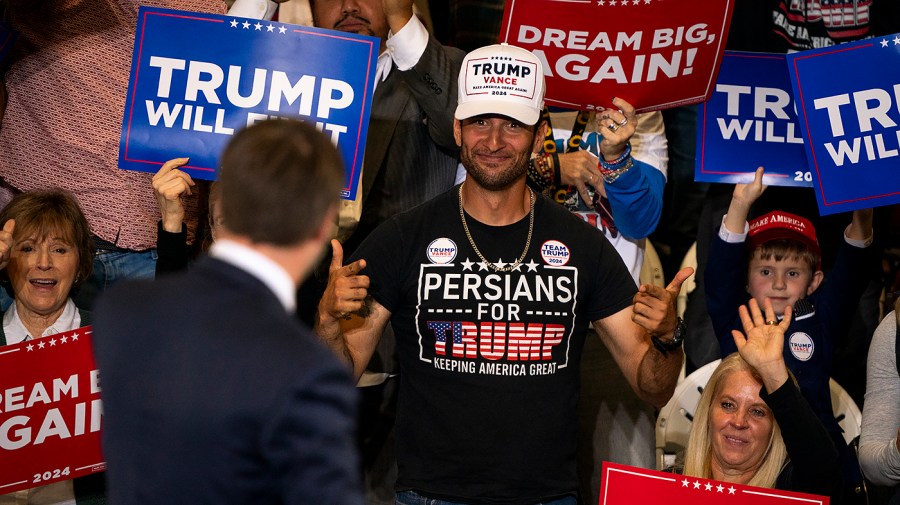
Republicans have made gains with minority voters in the past two elections, a marked shift among some of the most loyal voting blocs for Democrats.
The GOP saw an increase in support from Asian, Black, Hispanic and Latino voters in November, building on the growth the party saw from the midterms.
But some Republicans warn that the party needs to do more to continue these gains and not take those voters for granted.
“If the leadership at the GOP in the House don’t start to critically think about the role that minorities play for their conferences and the outreach that they need to do, they’re going to miss the moment,” Helder Toste, former Republican National Committee (RNC) Hispanic outreach director, told The Hill.
Much of the inroads the GOP made with voters of color was thanks to President-elect Trump.
Exit polling from CNN showed Trump’s support among Latino voters jumped from 32 percent to 46 percent. Among Asian American voters, Trump moved the needle from 34 percent to 39 percent.
“Trump getting this record high of the Hispanic share isn’t just a fluke,” Toste said. “There have been a lot of party investments over the last few years that have pretty much allowed President Trump to ride the wave.”
He pointed to major investments in minority communities across battleground states like Georgia and Pennsylvania. The RNC also opened up outreach centers ahead of the election, hoping to meet with voters of color. Toste added that grassroots organizers like himself have been knocking on doors sharing vital information with voters for some time.
But, Toste added, the GOP must recognize its base is no longer as homogeneous as many once thought.
“The party needs to have a clear reckoning with itself about the fact that they won because of Hispanics and not just a white coalition like they did in 2016,” said Toste. “If they do not learn that lesson, they will lose.”
Antjuan Seawright, a Democratic strategist, admitted that some of the numbers in favor of Trump came as a surprise but dismissed the gains as a one-off rather than a growing trend.
“You never make assumptions about the electorate or about voters in general,” Seawright said. “What I think this means for Democrats is we have to be very intentional about motivating, cultivating and educating our base.”
Motivating that base is going to be crucial as Democrats look toward upcoming special elections in light of House vacancies from Cabinet appointments, he added.
Part of that base is Black voters.
Despite many Black Americans being raised with conservative or traditional values, more than 80 percent identify as or lean Democratic.
Despite the inroads Trump made with Latino voters, he fell short among Black voters, a crucial voting bloc for Democrats. Only 13 percent of Black voters cast their ballots for Trump — a negligible increase from 12 percent in 2020.
Still, Janiyah Thomas, Black media director for Team Trump, said she ran into many Black voters who felt connected to the Trump campaign but were too scared to be open about it.
“Democrats pressured a lot of people into feeling like they’re losing their Black card for not voting for Kamala Harris,” Thomas argued.
She added that the Republican Party must capitalize now on that frustration with the Democrats if they want to bring more Black voters into the fold in time for the 2026 midterms.
“Republicans have to work twice as hard to talk to that demographic,” she said.
That extra work is in part because some Black voters are concerned about Republican messaging.
Morandon Henry, a voter who supported Vice President Harris this year, told The Hill on election night at Howard University that he has major concerns about Trump’s rhetoric around the Central Park Five and his reported “sh-t hole countries” remark, in which Trump during his first-term apparently referred to Haiti and African nations by the disparaging label.
Such rhetoric has him concerned about how Trump — and the larger Republican Party — view Black Americans.
“As a Black man, I’m scared,” Henry said.
Thomas, the member of Trump’s campaign, said the GOP must find new messengers to reach voters like Henry — and some of those messengers could be Black men.
“We need to find a way to make people, especially Black people, more comfortable with us and the right messenger will make people feel more comfortable,” Thomas said. “We have great leadership between congressman [Byron] Donalds, Sen. Tim Scott, Wesley Hunt. It’s not just on them, but it starts there.”
But Republicans also have to go where they’re not exactly wanted, added Whitley Yates, director of diversity and engagement for the Indiana Republican Party.
“Republicans have to get comfortable with being uncomfortable, which means going into neighborhoods where you know you’re not going to win this community, but you’re going to engage anyway because they deserve to hear your ideas as someone that’s going to represent them,” Yates said.
“The problem in the past is Republicans have a lot of times been afraid to go where they haven’t seen any type of political benefit, where it hasn’t been politically profitable to go into communities and to walk into rooms where you know everyone’s going to disagree with you.”
She pointed to Trump’s rally in the Bronx and even his appearance at the National Association of Black Journalists conference in July.
The appearance was heavily criticized, and his comments sparked outrage, but the fact he showed up knowing he was not welcome mattered to a community that has consistently felt overlooked by politicians, said Yates.
“Republicans have to take that lesson,” Yates said. “It’s not about politics. The goal is if [voters of color] have an issue, then at least they have somebody on the right that they can call.”














